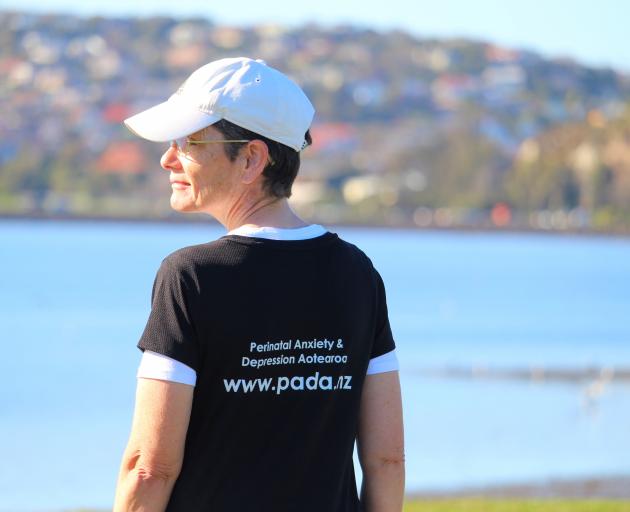
When Cherie McKinnon had her son about 16 years ago she experienced post-natal depression.
Her son was a "good boy, full of energy, a delightful wee man".
But emotionally Ms McKinnon felt everything was becoming overwhelming, and as things escalated she experienced suicidal thoughts.
"It just went from bad to worse."
Her experience not only had an impact on herself, it also hurt others, and she said she wanted to raise awareness that help was available.
She can not change what happened for her, but she hopes she can help others by speaking and raising awareness of post-natal depression.
"It was challenging, and even still today post-natal depression isn’t really spoken about, it is kind of like ‘hush-hush’."
Ms McKinnon has been walking the streets of Dunedin, "pounding the pavement" for Perinatal Anxiety and Depression Aotearoa (Pada), and will be walking the half-marathon as a fundraiser for Pada.
After injury put paid to previous efforts to take part in the Emerson’s Dunedin Marathon, Ms McKinnon will try again.
"I will be walking the half marathon for all the mums and bubs."
- To give, visit givealittle.co.nz and search for Pada.
You are not alone+
A spokesperson for Pada said post-natal depression ranged from mild to severe.
At its most mild, which was relatively common, it was not dangerous and generally got better with good emotional and practical support, sleep and time. But, at its most serious — which was much less common — it could be life threatening and pose a risk to the parent, their baby and their whānau.
Treatments and support were usually very effective when provided in a timely manner, working with the parent and whānau to develop a plan with consideration of their unique needs and resources, including the baby.
"Pregnancy and childbirth can be a wonderful experience, but it also brings many changes and challenges.
"If you are reading this and you feel scared or overwhelmed after your baby’s birth, it is important to know that help is available — many other parents struggle with anxiety and depression when a new baby arrives.
"You are not the only one that feels this way — and there is absolutely no need to suffer alone, so talk to your midwife, doctor, other health carer or trusted friend."













